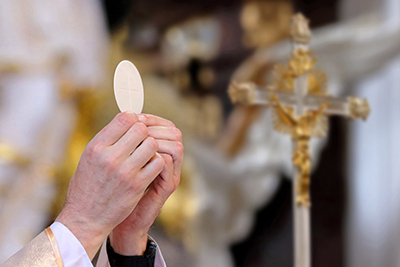Hi Mungo,
The Apostolic and Early Fathers baptized babies, and the chances are that there were children in Acts 13:33 the jailor and his entire household were baptized.
The Early Fathers believed that baptism took away sin, but that it was also a blessing in the case of little ones and that they should not be denied this offering from God.
"And when a child has been born to one of them[ie Christians], they give thanks to God[ie baptism]; and if moreover it happen to die in childhood, they give thanks to God the more, as for one who as passed through the world without sins."
Aristides,Apology,15(A.D. 140),in ANF,X:277-278
“He [Jesus] came to save all through himself; all, I say, who through him are reborn in God: infants, and children, and youths, and old men. Therefore he passed through every age, becoming an infant for infants, sanctifying infants; a child for children, sanctifying those who are of that age . . . [so that] he might be the perfect teacher in all things, perfect not only in respect to the setting forth of truth, perfect also in respect to relative age” (Against Heresies 2:22:4 [A.D. 189]).
Irenaeus
"And they shall baptise the little children first. And if they can answer for themselves, let them answer. But if they cannot, let their parents answer or someone from their family."
Hippolytus of Rome, Apostolic Tradition,21(c. A.D. 215), in AT,33
Read more:
https://www.catholicfidelity.com/apologetics-topics/baptism/church-fathers-on-infant-baptism/
The reason is was good to baptize infants at the beginning is because those that considered themselves to be Christian were intent on raising their children that way.
The CC teaches that Adam and Eve committed a personal sin and that this sin would cause man to be born in a fallen state. IE The sin nature of man.
It is a sin contracted and not committed -
A state and not an act.
CCC 404-405
404 How did the sin of Adam become the sin of all his descendants? The whole human race is in Adam "as one body of one man".By this "unity of the human race" all men are implicated in Adam's sin, as all are implicated in Christ's justice. Still, the transmission of original sin is a mystery that we cannot fully understand. But we do know by Revelation that Adam had received original holiness and justice not for himself alone, but for all human nature. By yielding to the tempter, Adam and Eve committed a personal sin, but this sin affected the human nature that they would then transmit in a fallen state. It is a sin which will be transmitted by propagation to all mankind, that is, by the transmission of a human nature deprived of original holiness and justice. And that is why original sin is called "sin" only in an analogical sense: it is a sin "contracted" and not "committed" - a state and not an act.
405 Although it is proper to each individual, original sin does not have the character of a personal fault in any of Adam's descendants. It is a deprivation of original holiness and justice, but human nature has not been totally corrupted: it is wounded in the natural powers proper to it, subject to ignorance, suffering and the dominion of death, and inclined to sin - an inclination to evil that is called concupiscence". Baptism, by imparting the life of Christ's grace, erases original sin and turns a man back towards God, but the consequences for nature, weakened and inclined to evil, persist in man and summon him to spiritual battle.
source: http://www.scborromeo.org/ccc/para/405.htm
What changed with Augustine is that he declared Original Sin to be treated as a personal sin.
So, IOW, when a baby is born, he already has a sin on his soul, which must be removed.
Augustine taught that if a newborn baby died without baptism, it would be impossible for him to enter into heaving, citing Rev. 21:27 --- nothing unclean will enter into heaven
Augustine taught that infants who died unbaptized suffered the pains of hell, although in ameliorated form. Medieval theologians developed the notion of limbo to mitigate Augustine's teaching, and ideas about limbo have become progressively milder throughout Church history.
source: https://www.google.com/search?q=aug...i390i650l4.4972j0j15&sourceid=chrome&ie=UTF-8
This idea was so horrendous that even the Church could not accept it after Augustine's death, and the myth of Limbo began to circulate. A place the CC never actually taught existed.
To this day the church states that if an infant dies without baptism we depend on God's mercy...
difficult it must be to go against something taught for many years, but unacceptable.






